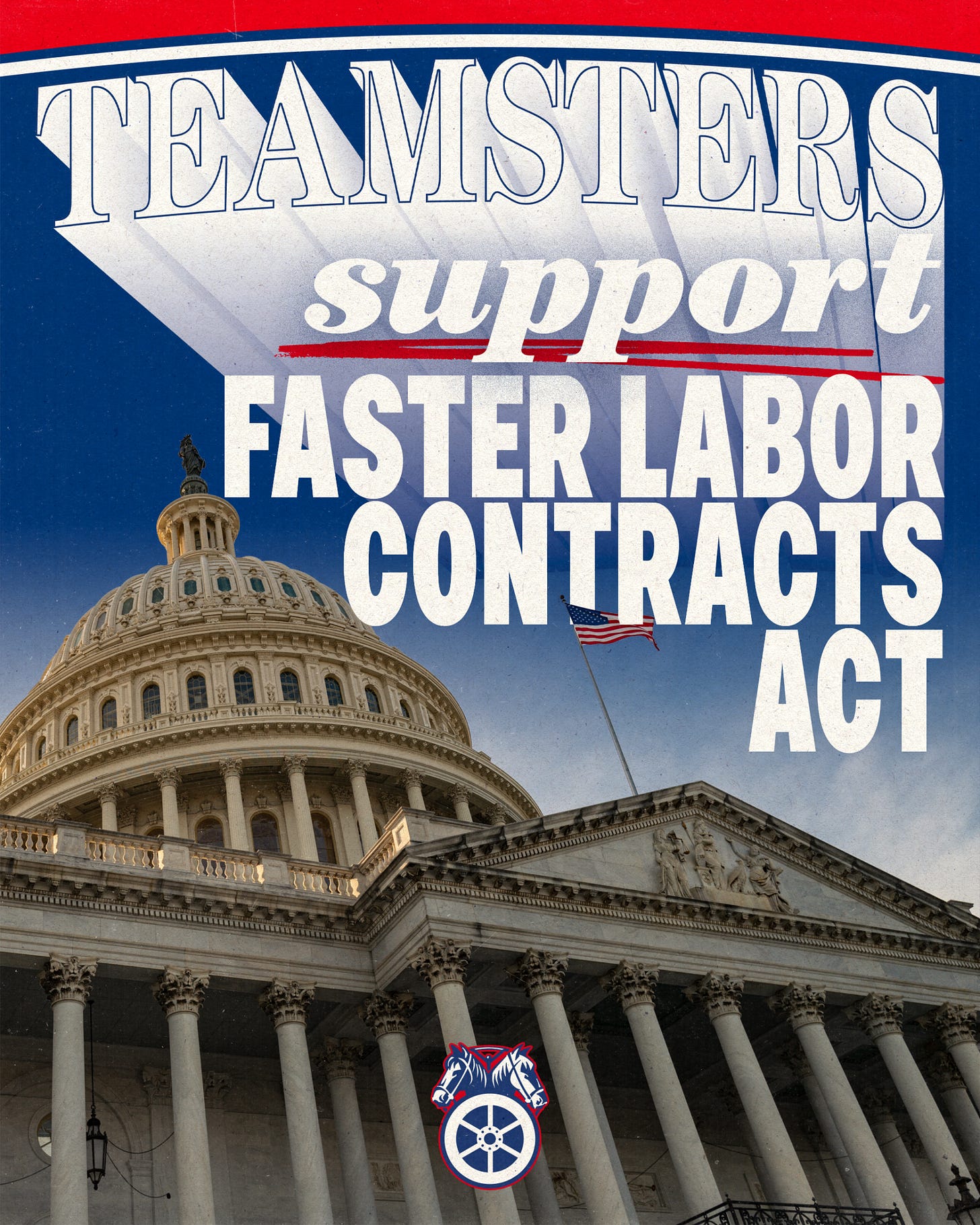03/07/2025: Faster Labor Contracts Act
Also FMCS suspends its free card check.
Faster Labor Contracts Act
Senators Cory Booker (D-NJ) and Josh Hawley (R-MO) introduced the Faster Labor Contracts Act (“FLCA”) in the Senate yesterday. The bill currently has three cosponsors and has no real chance of passing the Senate or the House, let alone being signed by President Trump.
The FLCA is basically just the first-contract binding arbitration provision from the Employee Free Choice Act (“EFCA”), the legislation that labor unions tried and failed to pass in the 2009-2010 Congress when Democrats controlled the Senate, House, and Presidency.
The binding arbitration process in the FLCA has three escalating steps that begin after a new union is certified or recognized as the collective bargaining agent for a unit of workers.
Mandatory Bargaining (Within 10 Days):
Within 10 days of a written request from the union, the employer and union must meet and begin bargaining in good faith to reach a contract.
Mediation (After 90 Days of Bargaining):
If no agreement is reached after 90 days of bargaining, either party may request mediation through the Federal Mediation and Conciliation Service (FMCS).
FMCS will attempt to mediate and help the parties reach an agreement.
Binding Arbitration (After 30 Days of Mediation):
If mediation fails after 30 days, the issue goes to a 3-person arbitration panel:
One arbitrator is chosen by the union.
One arbitrator is chosen by the employer.
A neutral arbitrator is mutually selected by the union and employer or appointed by FMCS if the parties fail to agree.
Through a majority vote, the panel will write a collective bargaining agreement that is binding on both parties for 2 years.
In crafting the collective bargaining agreement, the arbitration panel must consider:
The employer’s financial status, size, and type of business.
The cost of living for employees.
Employees’ ability to support themselves and their families.
Wage and benefit standards from similar businesses.
If enacted, the FLCA could help fix a very broken part of the current National Labor Relations Act (NLRA) regime. Section 8(d) of the NLRA establishes that unions and employers have an obligation to bargain while Sections 8(a)(5) and 8(b)(3) make it an unfair labor practice for employers and unions to violate that obligation. But employers have long figured out how to drag this process out for years by refusing to bargain, pretending to bargain, and bargaining to impasse. More fundamentally, an obligation to bargain is not the same thing as an obligation to agree, and the disconnect between the two makes it hard for good-faith bargaining to occur when one of the parties would rather not reach any kind of agreement.
Making it so that a failure to reach an agreement ultimately results in one being imposed on the parties by FMCS arbitrators directly fixes the problem of employers dragging out bargaining for years and often never reaching any kind of agreement. Perhaps even more importantly than that, the threat of binding first-contract arbitration actually gives employers a reason to bargain in good faith as many would prefer writing their own collective bargaining agreements over having outside arbitrators do so.
Federal Mediation and Conciliation Service Ceases Free Card Check Services
Josh Eidelson reports in Bloomberg today that the FMCS will stop providing free card check services for unions and employers who opt to use the alternative card check process for certifying the majority status of newly unionized bargaining units.
There are three main ways that unions end up certified or recognized as collective bargaining representatives:
Voluntary Recognition. A union demonstrates to an employer that the majority of its workers has authorized the union to represent them and the employer voluntarily recognizes the union as the bargaining representative.
Election. Either a union or an employer asks the NLRB to conduct a secret-ballot election to determine whether a union has the support of the majority of the workers in a new bargaining unit.
Card Check Agreement. A union and employer sign a card check agreement that states that if the union can collect signed authorization cards from the majority of the workers in a proposed bargaining unit, then the employer will recognize the union without an election. As part of the agreement, a neutral third party is assigned to count the cards and determine whether the union has achieved majority status.
During the Biden administration, the FMCS, which is a federal agency, declared that it would be the neutral third party for unions and employers that went the card check agreement route without charging any fees. Now the Trump administration is reversing that decision. Thus, going forward, unions and employers looking to use card check agreements will need to use paid third-party services to count the cards, which will marginally increase the cost of unionization.

